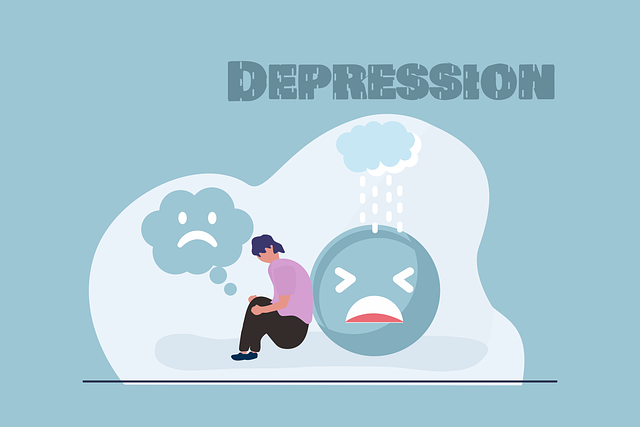A mental wellness app targeting Colorado Springs Hebrew speakers aims to fill a gap in the market by offering language-specific therapy, addressing cultural barriers and promoting open conversations about mental health. With a focus on effective communication, crisis intervention, and coping skill development, the app caters to a growing demand for accessible therapy options in the region. Through strategic marketing including social media engagement, influencer partnerships, and SEO targeting "Colorado Springs Hebrew Speaking Therapy," the app aims to build trust, empower users with tailored interventions, and differentiate itself from competitors by offering unique, culturally sensitive coaching programs.
In today’s digital age, mental wellness apps are gaining traction, especially among diverse communities like Colorado Springs Hebrew speakers. This article delves into crafting an effective marketing strategy for such apps. We explore the unique needs of this audience and highlight why a specialized Hebrew speaking therapy app stands out. Additionally, we navigate optimal marketing channels and strategies to thrive in a competitive market, focusing on SEO keywords like ‘Colorado Springs Hebrew Speaking Therapy’ to attract and engage targeted users.
- Understanding Your Target Audience: Exploring the Needs of Colorado Springs Hebrew Speakers
- Crafting a Unique Value Proposition: Why Hebrew Speaking Therapy App Stands Out
- Marketing Channels and Strategies for Effective Promotion in a Competitive Market
Understanding Your Target Audience: Exploring the Needs of Colorado Springs Hebrew Speakers

In developing a marketing strategy for a mental wellness app catering to Colorado Springs Hebrew speakers, understanding the unique needs and challenges faced by this community is paramount. According to recent studies, there’s a growing demand for accessible therapy options in this region, particularly among those who speak Hebrew as their primary language. Many individuals within this demographic may face cultural barriers when seeking mental health support, creating a distinct need for services tailored to their linguistic and cultural background.
By offering resources that cater specifically to Colorado Springs Hebrew speaking therapy, app developers can ensure effective communication and a deeper connection with users. This approach extends beyond basic translation, focusing on the development of coping skills and emotional intelligence through culturally sensitive crisis intervention guidance. Tailoring content to address these specific needs will foster trust and encourage open conversations around mental wellness within this underserved community.
Crafting a Unique Value Proposition: Why Hebrew Speaking Therapy App Stands Out

In the competitive landscape of mental wellness apps, a unique value proposition is key to standing out. For instance, consider an app offering Colorado Springs Hebrew Speaking Therapy, catering specifically to individuals seeking therapeutic support in their native language. This niche focus isn’t just about accessibility; it empowers speakers to connect with therapists on a deeper level, fostering trust and encouraging open dialogue. By providing services tailored to the unique cultural and linguistic needs of the community, this app becomes an indispensable tool for navigating burnout prevention and stress reduction methods.
Unlike general mental wellness apps that employ one-size-fits-all strategies, this specialized platform offers targeted interventions. It recognizes the power of language in shaping emotional expression and healing processes. By incorporating Hebrew speaking therapy, the app caters to individuals who may feel more comfortable discussing sensitive topics in their native tongue, thereby enhancing the therapeutic experience. This cultural sensitivity is a game-changer, ensuring that users can embrace positive thinking and engage in effective stress reduction methods tailored to their specific needs.
Marketing Channels and Strategies for Effective Promotion in a Competitive Market

In today’s competitive market, promoting a mental wellness app requires a strategic marketing approach to reach and engage its target audience, especially in a city like Colorado Springs with a diverse population, including Hebrew-speaking communities. Utilizing various channels and strategies can effectively spread awareness about the app’s unique offerings. Social media platforms such as Instagram and Facebook are powerful tools for targeting specific demographics; creating engaging content that highlights the benefits of self-care routine development and stress management techniques can attract potential users. Influencer partnerships with local mental health advocates or Hebrew-speaking therapists in Colorado Springs could also amplify the app’s reach, especially when promoting its cultural sensitivity and accessibility.
Additionally, implementing SEO strategies is crucial for visibility online. Optimizing content with relevant keywords like “Colorado Springs Hebrew Speaking Therapy” ensures that the app appears in local searches, tapping into a niche market. Offering free trial periods or showcasing success stories through case studies can further encourage downloads and subscriptions. The app’s development of mental wellness coaching programs tailored to individual needs positions it as a comprehensive solution for better mental health, setting it apart from competitors and fostering user loyalty.
Developing a marketing strategy for a mental wellness app catering to the Colorado Springs Hebrew-speaking community involves understanding their unique needs and leveraging the right channels. By focusing on creating a distinct value proposition, such as specialized therapy in their native language, you can stand out in a competitive market. Utilizing digital platforms, like targeted social media campaigns and SEO-optimized content, will help attract and engage your audience. Remember, effectively promoting a niche app requires a deep understanding of its target market to ensure successful user acquisition and retention.













